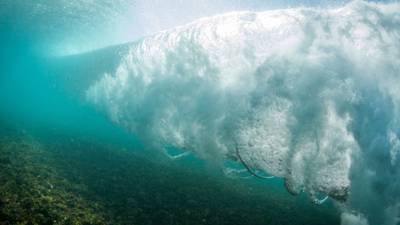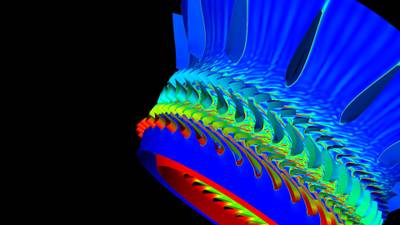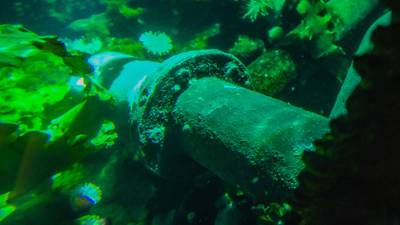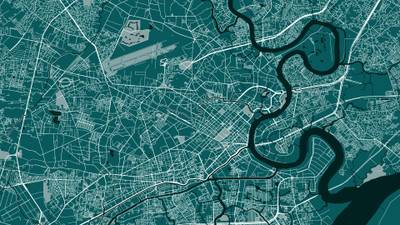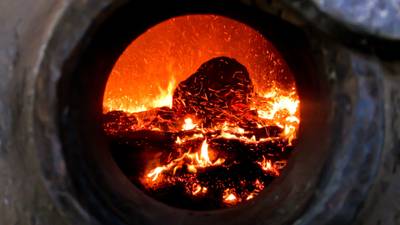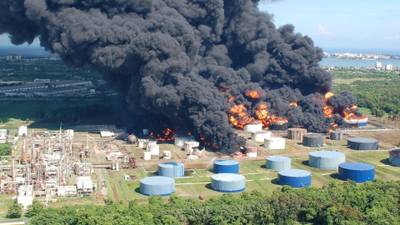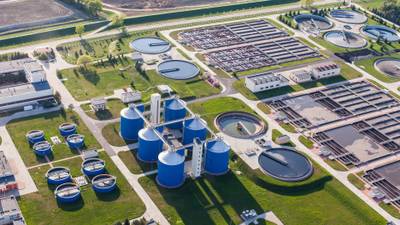Join a reservoir simulation course you can study flexibly online.
Gain in-demand skills for reservoir management and reservoir engineering careers.
In this Masters-level online short course, you’ll acquire advanced knowledge in numerical reservoir simulation and the modelling of fluid flow in subsurface porous media.
You’ll develop skills encompassing:
- the construction of accurate reservoir models
- proficiency in using simulation software tools, and
- a deep understanding of fluid flow dynamics.
Your learning will enable you to contribute to critical aspects of reservoir management, including making informed decisions about production strategies, reservoir development, and enhanced oil recovery methods.
Who can join this online reservoir simulation course?
This distance-learning course is for people who have a background in Engineering.

Build credits towards an accredited Masters degree
This online course is part of our Energy Institute-accredited:
You can use the credits you earn with this short course towards this MSc qualification.
What you’ll study
In this course, you’ll cover the following modules:
- Fundamentals of the reservoir simulation
- Ordinary and partial differential equations
- Analytical and numerical solutions for partial differential equations
- Static modelling and upscaling
- Dynamic modelling
- History matching and prediction
You’ll learn to construct and analyse numerical reservoir models, allowing you to simulate and predict reservoir behaviour under different conditions.
You’ll become adept at characterising reservoirs through data analysis, uncertainty assessment, and history matching, contributing to more accurate and reliable simulation models.
You’ll gain a solid understanding of fluid flow dynamics, so you can confidently optimise production processes, improve recovery rates, and troubleshoot challenges in reservoir engineering.
You’ll also learn to collaborate effectively within interdisciplinary teams, communicate findings, and apply industry best practices, making you a valuable contributor to projects focused on the sustainable development and optimisation of subsurface reservoirs.
By the end of this course, you’ll be able to...
-
Construct static and dynamic reservoir simulation models.
-
Evaluate reservoir performance and carry out upscaling and sensitivity analysis.
-
Carry out history matching and prediction.
-
Design an optimum recovery technique (development plan) based on the results of the simulation.
-
Design well placement and select the best recovery mechanism.
-
Understand the principles of numerical reservoir simulation.
-
Use ordinary and partial differential equations for reservoir engineering.
-
Evaluate analytical and numerical solutions for partial differential equations in reservoir engineering.
-
Assess pressure regimes, fluid gradients and initial reservoir condition.
-
Post processing reservoir simulation outcomes.
Choose the University of Aberdeen for reservoir management courses

Earn as you learn
We fit around full-time work, so you can earn qualifications while you keep earning a salary.

You’re in expert hands
We’ve been training world-class engineers for over 100 years and delivering online learning for decades.

20% alumni discount
University of Aberdeen alumni get 20% off this online course.
How you’ll study
Online learning
This distance-learning reservoir simulation course is delivered flexibly online.
You can learn with us anywhere in the world, no student visa required, and manage your study hours to suit you.
Your teaching
This course is taught at Masters level.
Teaching is delivered through MyAberdeen, our online Virtual Learning Environment (VLE). It holds all the materials, tools and support you’ll need in your studies. Take a look around MyAberdeen.
You can access your learning materials on computer, smartphone and laptop, 24 hours a day. You’ll find a range of resources available, including:
- videos
- video lectures
- online tutorials
- quizzes
- reading materials
- discussion boards with your tutors and peers
- the online resources of our award-winning Sir Duncan Rice Library.
Your tutors
You’ll learn from a team of internationally experienced engineers and academics from our School of Engineering.
You’ll be assessed online. Assessment will take place throughout the teaching term.
Types of assessment for this course may include:
- coursework
- online quizzes
- timed online open-book assessments.
Assessment deadlines
Your assessments will have submission deadlines, either during or at the end of the course. Your course coordinator will let you know when your assessment deadlines are, so you can plan your study time accordingly.
The course totals approximately 150 hours of study and assessment time. That’s around 10 – 15 hours per week.
This is an indicative guide to the time required for a typical student at this level to achieve the learning outcomes. This includes time for independent study, as well as teaching and assessments.
You can largely set your own study hours each week to cover the materials. MyAberdeen is available 24/7, so you can log in and study when it suits you.
Activities with deadlines
There will be some activities scheduled at fixed times, such as assessments with deadlines, or meetings with your tutor. But otherwise, you can access and work through the course at your convenience.
Our first-class support structure will ensure that you aren’t alone in your studies. You’ll have contact with your coordinator via email, MyAberdeen and Microsoft Teams. You can use social media and discussion boards to chat with your fellow students too.
We provide a wide range of services to support you in your studies and beyond:
- Careers and Employability Service
- Disability support
- IT support
- Library support
- Student Support Service – help with finances, stress, wellbeing and non-academic issues
- Student Learning Service – study support, with advice sessions available via phone or Skype
- Aberdeen University Students’ Association (AUSA) – run by students for students
- Toolkit – clever apps and free training that can make your study life easier
Wherever you are in the world, you’ll feel part of our very special Aberdeen learning community.
Your course coordinator

Dr Roozbeh Rafati
Roozbeh is a professional engineer, researcher and lecturer in the fields of Petroleum Reservoir Engineering, Enhanced Oil Recovery (EOR) and Reservoir Simulation.
View Roozbeh’s profileWhere this will take you
Towards a Masters
You’ll earn 15 credits at Masters level (SCQF Level 11) with this course. You can use these credits towards our:

Accredited Masters in Petroleum Engineering
Become a world-class petroleum engineer, ready to take up roles in the upstream oil and gas industry. Join our accredited online MSc in Petroleum Engineering, designed in partnership with industry.
View MSc Petroleum EngineeringFurther learning pathways
The reservoir simulation course provides a solid foundation for diverse learning pathways within the energy sector.
Following this course, you might consider:
- Masters study in Reservoir Engineering or Subsurface Energy Engineering
- PhD programmes in Reservoir Engineering or Subsurface Energy Engineering. For those inclined towards research, a PhD programme offers the opportunity to contribute to cutting-edge developments in reservoir simulation and related fields
- Business or Project Management programmes to enhance leadership skills and contribute effectively to the strategic aspects of the oil and gas industry.
Careers
Successful completion of the reservoir simulation course opens doors to various rewarding roles in the oil and gas industry, including:
- Reservoir Engineer: use simulation techniques to optimise reservoir performance, assess recovery strategies, and contribute to field development plans
- Petroleum Engineer: design and implement processes to maximise hydrocarbon recovery
- Production Engineer: oversee day-to-day operations of oil and gas wells, ensuring optimal production and reservoir performance
- Geothermal Reservoir Engineer: model and optimise geothermal reservoirs, contributing to sustainable energy extraction
- Carbon Capture and Storage (CCS) Engineer: use simulation skills to model and assess the feasibility of CCS projects, mitigating carbon emissions from fossil fuel operations
- Energy Storage Specialist: simulate and optimise subsurface storage of energy, including technologies like compressed air energy storage or subsurface hydrogen storage
- Environmental Engineer in Geoenergy: assess and model the environmental impact of geoenergy extraction, ensuring sustainable practices and regulatory compliance
- Simulation Specialist: speciale in reservoir simulation, providing expertise in modelling and analysing reservoir behaviour
- Energy Data Analyst: use skills in data interpretation and analysis to inform decision-making processes related to reservoir management
- Project Manager in Oil and Gas: manage reservoir-related projects.
Continuing Professional Development (CPD)
Your employer or professional institute may recognise this course for CPD hours. Talk to your employer or institute to find out more.

Free career support
Access our free careers service while you study.
- 1:1 appointments
- CV checks
- Interview prep
- Job opportunities
Entry requirements
Entry requirements
We welcome students from all over the world.
This course has no formal entry requirements. You do not need to provide proof of your qualifications.
But you do need to check the entry guidance above to understand the level of teaching delivered, to decide if this course is right for you.
If you do not have qualifications from the UK, check the equivalent teaching level for your country.
Visa requirements
You do not need a student visa to study online with us.
English language requirements
Teaching is delivered in English.
You do not have to provide proof of your English language skills to join this course. But we want to make sure that you can use English well enough to study successfully.
Recommended level of English
For this course, we recommend the following level of English language proficiency.
These are our Postgraduate Standard requirements, and these are minimum scores.
IELTS Academic, IELTS UKVI Academic, and IELTS Online (not IELTS Indicator or IELTS General Training)
- 6.5 overall
- 5.5 for listening, reading and speaking
- 6.0 for writing
TOEFL iBT and TOEFL iBT Home Edition
- 90 overall
- 17 for listening
- 18 for reading
- 20 for speaking
- 21 for writing
- TOEFL DI code is 0818
Cambridge English: B2 First, C1 Advanced, or C2 Proficiency
- 176 overall
- 162 for listening, reading and speaking
- 169 for writing
LanguageCert Academic/LanguageCert Academic SELT
- 70 overall
- 60 for listening, reading and speaking
- 65 for writing
LanguageCert International ESOL B2 Communicator (Written and Spoken) – Online / In-centre
- Overall High Pass
- 33 for listening, reading and speaking
- 38 for writing
Oxford ELLT Digital – English Language Level Test Online
- 7.0 overall
- 5.0 for listening, reading and speaking
- 6.0 for writing
PTE Academic (online test not accepted)
- 62 overall
- 59 for listening, reading, speaking and writing
Duolingo – tests taken from 1 July 2024 onward
- 120 overall
- 95 for listening, reading and speaking
- 105 for writing
University of Aberdeen English Pre-sessional Programme (PSE)
- Pass
- Valid for one year. Refresher can be offered if out of date
Pre-sessional academic English preparation programmes undertaken at other UK universities
- Pass at an equivalent of 6.5 (C1)
- B2 in all four skills
- Certification must be within one year prior to the start of your course
For full information about language requirements, see our English Language Requirements page.
You will need access to:
A computer (PC, laptop or Mac) operating on either:
- Windows 10 or later
- macOS 10.15 (Catalina) or later.
Most teaching materials are smartphone- and tablet-friendly. But we recommend a proper laptop or desktop for completing assignments comfortably.
Reliable internet access
We recommend:
- a wired connection
- a minimum download speed of 2 Mbps so you can take part fully in live sessions.
Speakers or headphones
- We recommend a headset with built-in microphone and earphones if you’re likely to study in an environment with background noise.
- A webcam is optional, but you may like to use one for some interactive sessions.
Software
We’ll give you access to Office365 applications. This means you can use online versions of Microsoft Word, Excel, and PowerPoint and install these programs on up to five personal devices.
If your course requires specialist software, we’ll provide you with access to this and a licence that lasts throughout your studies.
See our detailed IT requirements for more information.
When you study with us, you can expect a first-class support structure so that you’re never alone in your studies.
But learning online does mean you have to motivate yourself and manage your own time.
Your most important commitment will be time – the time to work through, reflect on and understand your teaching materials.
Before you start a course that involves a high degree of independent study, we recommend looking at the time you will be able to devote to your studies each week:
- Be realistic
- Create a weekly schedule as a guide
If you have any questions about studying online, get in touch with our friendly team. We’re here to help.
Fee payment
Your course fee needs to be paid in full before you start your course.
We accept payment via Visa Debit, Visa Credit and Mastercard.
Ways to save
You may be able to get help funding this course via:
- discounts – if any discounts are available for this course, they’ll appear in the section below
- employer sponsorship – we accept full and partial fee payments from sponsors.
Find out more about funding options.
Student card
All our students are entitled to a University of Aberdeen student card. This gives you access to a range of student discounts around the city and online.
Learning resources
Access to all the essential books and resources you need are included in your tuition fee. They’ll be made available to you online and you do not have to buy your own copies.
We also provide optional recommended reading lists. Many of these resources are available electronically through our library, although purchases may be required if you wish to read the full list.
Printing
You may want to set aside a small budget for printing, depending on how you like to work.
This course has no formal entry requirements. You decide if it’s suitable for you.
To join this course, you should have an engineering background and be familiar with reservoir engineering concepts.
This course is mathematically intense, therefore good knowledge and understanding of advanced mathematics, eg, algebra, integrals, ordinary and partial differential equations, etc, is required.
The course is delivered at Masters level. For this course, you’d usually have at least:
- a 2:1 UK honours degree (or equivalent) in any branch of Engineering or Applied Mathematics, or
- a high 2:2 UK honours degree (or equivalent) in Engineering or Applied Mathematics and two years’ relevant experience, or
- a 2:1 UK honours degree (or equivalent) in Geology, Chemistry or Physics and two years’ relevant experience.
Key subjects you must have covered: Mathematics and Physics.
Apply for this course






